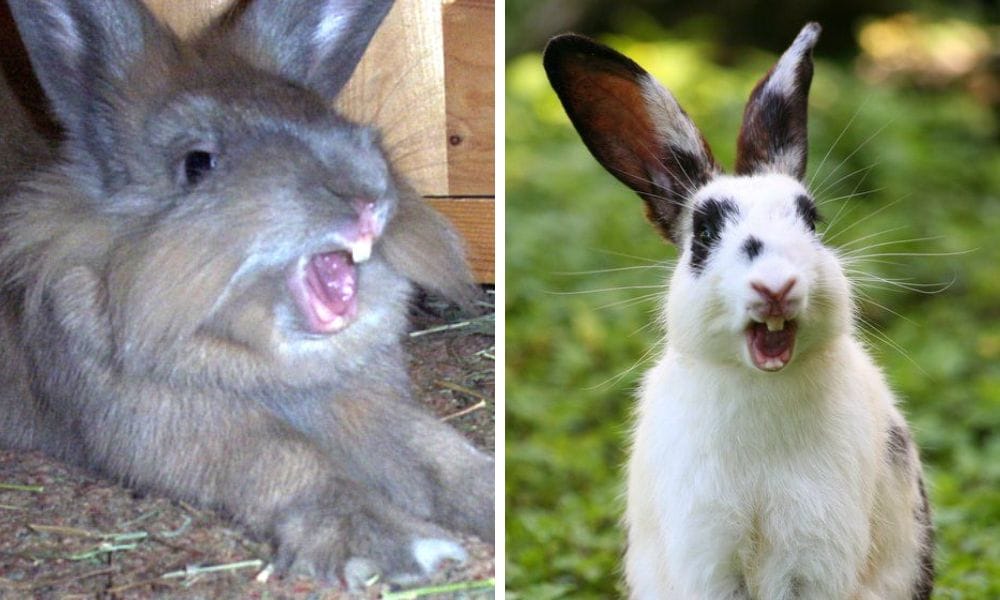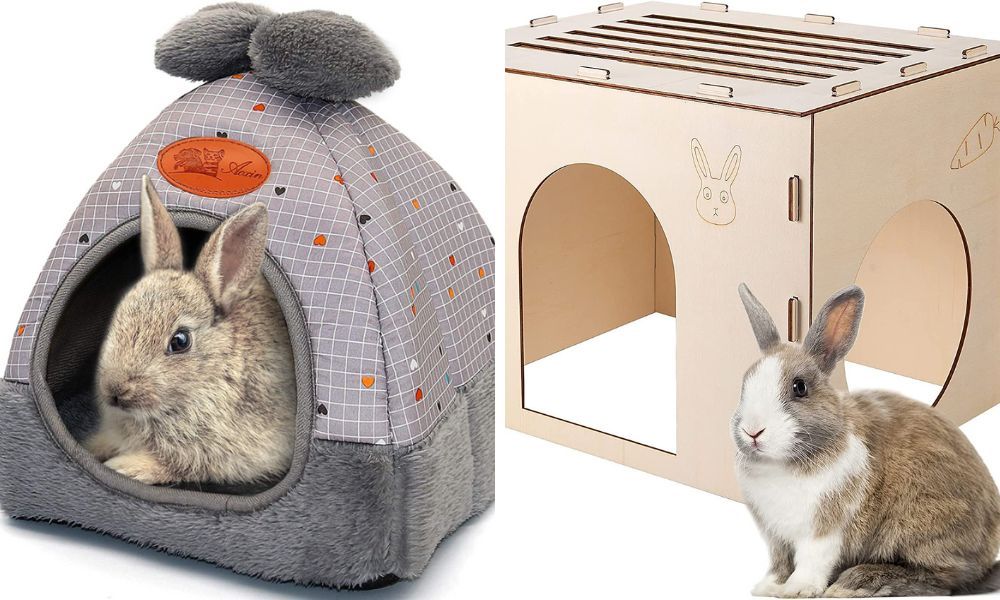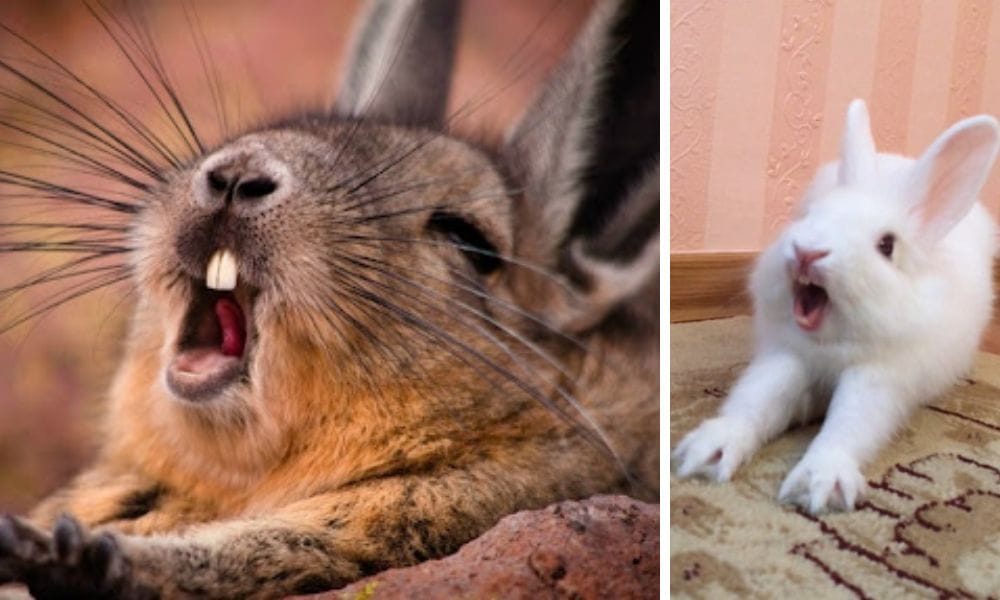Understanding Rabbit Yawning: An Insight into Bunny Behavior
Get ready to dive down the rabbit hole because today we're talking about the mysterious behavior of rabbit yawning. Enjoy reading1

Rabbits are fascinating creatures, often capturing our hearts with their cute and quirky behaviors. One such behavior that has intrigued many rabbit owners and enthusiasts is the act of rabbit yawning. But what does it mean when a bunny yawns? Is it a sign of tiredness as it is with humans, or is there more to this behavior? In this article, we’ll delve into the world of rabbits to understand why these adorable animals yawn and what it could signify. Readers can find additional information on rabbit behavior and care in the provided resources.
Key Takeaways:
- Rabbit yawning is a behavior that can indicate relaxation, stretching, or even a health issue.
- Understanding the context and frequency of bunny yawns can help owners better care for their pets.
- Observing a rabbit's body language and consulting with a vet can ensure the well-being of these cute animals.
What is Rabbit Yawning?
Rabbit yawning is a natural behavior that can be both adorable and intriguing. When a rabbit yawns, it opens its mouth wide, often stretching its legs, back, and neck in the process. This behavior can be a sign of relaxation and contentment, indicating that your bunny feels safe and comfortable in its environment. However, yawning can also occur in response to stress or anxiety. Understanding the context in which your rabbit yawns is crucial to interpreting its emotional state accurately. By paying attention to the surrounding circumstances and your rabbit’s overall behavior, you can better understand what your furry friend is trying to communicate.
Why Do Rabbits Yawn?
Rabbits yawn for a variety of reasons, each providing insight into their emotional and physical state:
- Relaxation and Contentment: One of the most common reasons rabbits yawn is because they feel relaxed and content. When your bunny feels secure and at ease, it may yawn and stretch as a way to unwind.
- Stress and Anxiety: On the flip side, yawning can also be a coping mechanism for rabbits experiencing stress or anxiety. If your rabbit is in a new or overwhelming environment, yawning might be a way to deal with the situation.
- Overstimulation: Sometimes, too much sensory input can lead to yawning. If your rabbit is exposed to a lot of noise, movement, or other stimuli, it might yawn as a way to manage the overstimulation.
- Communication: In social situations, yawning can serve as a form of communication between rabbits. It might be a way for them to signal to each other that they are relaxed or to diffuse tension.
By observing your rabbit and considering these factors, you can gain a better understanding of why it might be yawning at any given time.
The Science Behind Rabbit Yawning: Videos
When a rabbit yawns, it’s hard not to be charmed by the sight. Those wide-open mouths and the stretching of their legs can make for a perfect ‘lol’ moment. But beyond the cuteness, there’s a biological reason for this behavior. Yawning in rabbits, much like in humans and other animals such as cats, can be a sign of tiredness or the need to sleep. It’s a natural reflex that helps to increase oxygen intake and regulate brain temperature.
However, unlike humans, rabbits are prey animals, and their yawning can sometimes be misinterpreted. A rabbit may yawn when it’s feeling relaxed in its owner’s presence, showing a level of comfort and trust. This is often accompanied by a stretch and a sit-down, indicating the rabbit feels safe enough to let its guard down and rest. By utilizing data from various services, rabbit owners can better understand their pets' behaviors and needs, ensuring they provide the best care and environment for their furry friends

Identifying a Yawning Rabbit
Recognizing a yawning rabbit is relatively straightforward if you know what to look for. Here are some key signs:
- Wide, Open-Mouthed Yawn: The most obvious sign is a wide, open-mouthed yawn. This is often accompanied by a visible stretching of the mouth and jaw.
- Stretching of the Body: Along with the yawn, you might notice your rabbit stretching its legs, back, and neck. This full-body stretch is a common part of the yawning process.
- Relaxed Posture: A yawning rabbit will often have a relaxed posture. Its ears may be laid back, and its eyes might be half-closed, indicating a state of calm.
- Calm and Peaceful Demeanor: Overall, a yawning rabbit will appear calm and peaceful. This demeanor suggests that the rabbit is comfortable and at ease in its environment.
By paying attention to these signs, you can easily identify when your rabbit is yawning and understand what it might be feeling.
Interpreting Bunny Yawns
To truly understand what a rabbit’s yawn means, one must consider the context. If a rabbit yawns and then lies down for a nap, it’s likely just sleepy. However, if a bunny yawns repeatedly and appears to be in distress, it could be a sign that something is amiss. Frequent yawning accompanied by other unusual behaviors, such as not eating or being scared, could indicate a health issue, and a vet should be consulted. It is important to regularly review your rabbit's behavior to catch any potential issues early.
Moreover, yawning in rabbits can sometimes be a sign of happiness. When a rabbit is content, it may yawn, stretch its legs, and even ‘flop’ onto its side—a sure sign of a relaxed and happy bunny. Observing these behaviors can give owners a better understanding of their rabbit’s emotional state and help them provide a more comfortable environment. Understanding rabbit behavior can be fascinating for people of all ages, making it a rewarding experience for the whole family.
Videos of Yawning Rabbits: A Fun Way to Learn
Watching videos of yawning rabbits can be both entertaining and educational. These videos offer a delightful glimpse into the world of rabbit behavior, helping you better understand your pet’s actions. Platforms like YouTube and Facebook are treasure troves of adorable bunny videos, including those featuring yawning rabbits. By watching these videos, you can see firsthand how rabbits yawn and stretch, gaining valuable insights into their behavior. Plus, it’s a fun way to spend some time and share the joy of rabbit ownership with others. So, next time you’re curious about rabbit yawning, consider watching a few videos to learn more.
Creating a Relaxing Environment for Your Rabbit
Creating a relaxing environment for your rabbit is essential for its well-being and can help reduce stress-induced yawning. Here are some tips to create a calming atmosphere for your bunny:
- Provide a Quiet Space: Ensure your rabbit has a quiet and peaceful area to rest and relax. This space should be free from loud noises and sudden movements that could startle your bunny.
- Offer Toys and Activities: Keep your rabbit engaged and stimulated with a variety of toys and activities. This can help prevent boredom and reduce stress.
- Access to Essentials: Make sure your rabbit has access to fresh water, nutritious food, and plenty of hiding places. These essentials contribute to a sense of security and comfort.

- Comfortable Temperature: Maintain a comfortable temperature range for your rabbit, ideally between 60-70°F (15-21°C). This helps ensure your bunny is physically comfortable.
- Minimize Noise Levels: Try to keep noise levels low and avoid sudden, loud sounds. A calm environment helps your rabbit feel safe and secure.
By following these tips, you can create a relaxing environment that helps your rabbit feel at ease, reducing stress and anxiety that might lead to yawning.

When to Consult a Vet
While a rabbit yawning is often harmless, there are times when it could be a cause for concern. If you find your rabbit yawning more than usual, it might be time to turn the page in your bunny care book and seek professional advice. Excessive yawning could be a piece of a larger puzzle indicating dental issues, respiratory problems, or even pain. These are just a few categories of health issues that might require veterinary attention.
It’s essential to watch for other signs that might accompany the yawning, such as drooling, a change in eating habits, or a reluctance to move. These could be indicators that your rabbit is not just tired but may be unwell. In such cases, waiting is not advisable. A timely visit to the vet can ensure that any potential health issues are addressed before they become serious. Ads for veterinary services can help rabbit owners find the right care quickly and efficiently.

Rabbit Yawning: A Sign of Comfort and Mouth Movement
In the end, a rabbit yawning is often just a sign that your pet is feeling at ease. It’s a natural behavior that can indicate your bunny feels safe and comfortable in its environment. In Canada, rabbit care practices emphasize creating a comfortable environment for pets. When a rabbit yawns in your presence, it’s a good sign that you’ve created a loving and secure home for your furry friend.
As rabbit owners, it’s our responsibility to understand and interpret these subtle cues. By paying attention to when and how often our rabbits yawn, we can ensure they are not only cute but also happy and healthy.
Summary
Rabbit yawning is a behavior that can signify various things, from relaxation and sleepiness to potential health issues. Understanding the context of a bunny's yawns is crucial for owners to provide the best care for their pets. While often a sign of comfort, excessive yawning should be monitored, and a vet's opinion sought if accompanied by other concerning symptoms. Observing and interpreting our rabbits' behaviors can help us create a nurturing environment for these adorable creatures.
FAQ Section
Q: Is it normal for rabbits to yawn? A: Yes, it's normal for rabbits to yawn. It can be a sign of tiredness, relaxation, or just a natural reflex. However, excessive yawning could indicate a health issue.
Q: Can yawning be a sign of a health problem in rabbits? A: While yawning is typically normal, if it's excessive or accompanied by other symptoms like drooling, changes in appetite, or lethargy, it could be a sign of a health problem such as dental issues or respiratory problems. In such cases, consult a vet.
Q: How can I tell if my rabbit's yawning is a sign of happiness? A: If your rabbit yawns and then engages in other behaviors like stretching, lying down comfortably, or 'flopping' onto its side, it's likely a sign of contentment and happiness.


